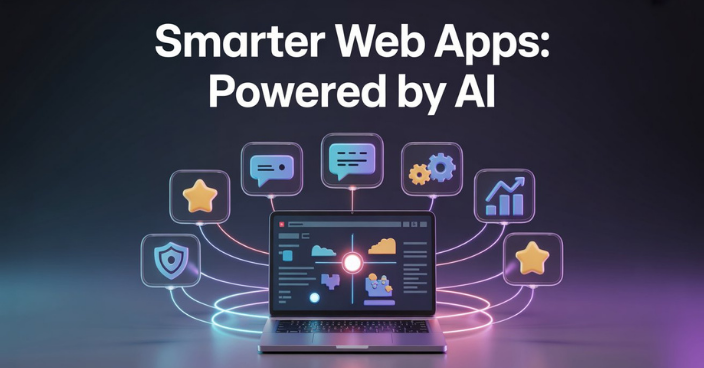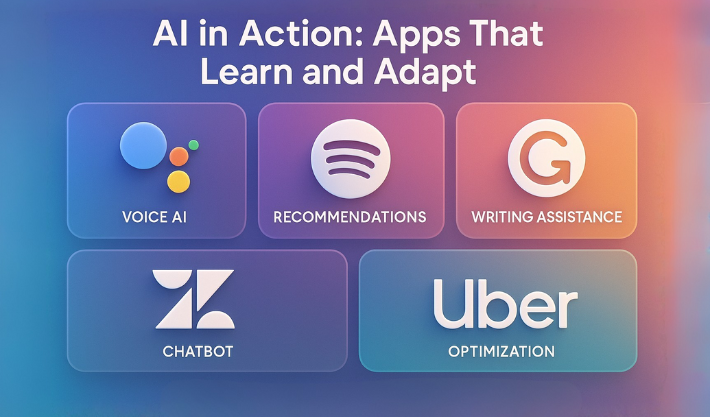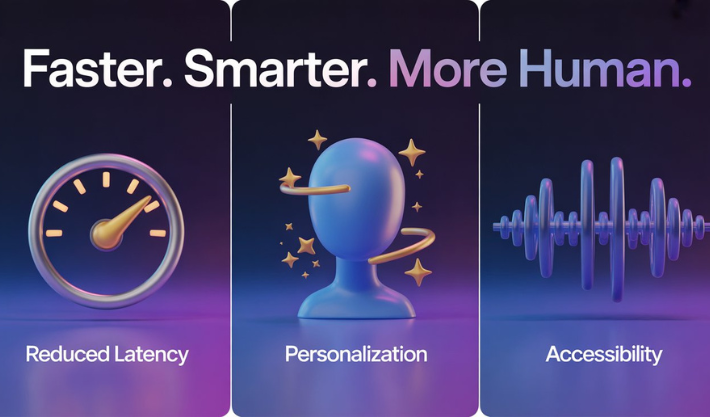

Are you ready to disrupt with AI? Join our Hackathon today! Click to Register
By WebOsmotic Team | Published on November 21, 2024
Summarize Article

Table of Contents
ToggleWith an evolving digital landscape, users demand smarter, faster, and highly intuitive web-related services. Artificial Intelligence in Web Applications or simply AIWA is one such technology that has come changing the way we engage with the web today. There is more to this technology; it has been useful in the development of websites that are customized in a way that people using the sites understand, processes simplified, and cater to everyone’s experience. This blog post examines the all-encompassing aspects of applications of artificial intelligence on the web. It includes the world’s designs and the contributions of AI to various activities in society.
Artificial Intelligence in web applications is the use of artificial intelligence technologies in web-based techniques. It is focused more on the enhancement of software capabilities for the web while improving user interactions and utilizing advanced features like process automation, personalization, and predictive intelligence. From simple chatbots to more complex recommendation systems, the use of AI is helping users transform web applications to respond and behave like personal assistants.
| AI Application | Description | Examples |
|---|---|---|
| Personalization | Delivers tailored content and recommendations. | Netflix (movie suggestions), Amazon (product recommendations). |
| Chatbots and Virtual Assistants | Provides 24/7 user support and interaction. | ChatGPT, Intercom, Drift. |
| Content Creation | Generates articles, blogs, or code snippets. | Jasper AI, GitHub Copilot. |
| SEO Optimization | Improves search rankings with AI analysis. | Surfer SEO, SEMrush. |
| Fraud Detection | Identifies suspicious activities in transactions. | PayPal, Stripe. |
| Voice Search | Enhances voice interaction capabilities. | Google Voice Search, Alexa. |
Online retailers such as Amazon or Netflix use AI to mine for users’ patterns and behaviors and cater to smart recommendation systems.
• Example: You visit a certain website, AI goes through your previous activity in a particular website including your most clicks, inquiries, and purchases, and recommends everything you are likely to buy.
The advent of AI-based chatbots and AI assistant services has improved customer care support systems. These tools also provide instant answers and take care of frequently asked questions while allowing the agents to deal with complicated questions.
• Example: ChatGPT utilizes web applications to assist users in resolving problems or replying to questions at that particular moment.
In this age of AI, social media applications tend to leverage predictive analysis to strategize on user trends and demand trends to not lag.
• Example:- AI in booking and travel sites has learned to predict hikes in prices and when it is most economically convenient to purchase tickets.
Tools for creation are of great help in the content process since, for example: Jasper and Grammarly can provide quality text without the writer’s internal search for all possible words on a requested topic.
• Example: Blogging sites use AI to suggest topics, keywords, and even full articles based on what’s newsworthy at that moment.
Web applications equipped with AI algorithms are used to control transactions and user activity to mitigate the risk of fraudulent behavior.
• Example:- Banking applications can predict, when a user makes attempts to log into the application, and that action is suspected to be inconsistent with the usual pattern of that user.

In such applications, artificial intelligence use cases some physically working tools or applications are demonstrated:
A Voice assistant, which can work with various web applications and enhance their usability by providing navigation, reminders, and real-time data.
Spotify AI generates personalized playlists for example book titled Develop Weekly on swot analysis of the strategist’s listening history and user taste profile.
Similar to spell check, except powered by artificial intelligence this writes cordially, suggesting what to correct as per real-life situations of grammar, tone, and style.
An interactive chatbot hub that creates seamless multitasking environments and assists customers through the use of conversational AI and demand specialists.
As with all the said companies, AI is also used by Uber in optimizing ride-matching and predicting ETA, while also increasing ride safety through fraud detection elements.

AI makes it possible for web applications to modify content, interface, and services as the user interacts with the application. A case in point is a news application that maps out articles according to the reading patterns of the user to optimize that user’s experience.
With the employment of artificial intelligence to drive certain features of an interface, the delay is almost zero, allowing clients to obtain responsive feedback or services like chatbots and search result predictions as quickly as possible.
AI helps make web applications more inclusive by enabling functionality such as voice control, screen narration, and pointer alternative control for those who are otherwise unable to use them.
In impact, web app AI is no longer a matter of choice for their integration inton the business processes of today’s economy. They:
• Media and Entertainment: AI technology is incorporated into broadcasting services to assist in determining the next suitable content for the audience.
The advances of Evolutionary artificial intelligence in web applications will be unmeasurable development with the following aspects:
This will involve AI technology that will read a user’s emotions and hence their intended feelings by reading their facial expressions and voice tones.
Web applications will become so user-friendly as to anticipate what the user wants before he or she even knows it.
AI will create safer methods of collecting and processing users’ data without infringing on their privacy but still providing the required services and experience.
Many opportunities are lurking, but some are barriers too.
3. Moral Issues: AI has some algorithms that act as a black box which raises some issues around fairness and explainability.
AI is not only improving existing web applications but also developing new versions of these applications. Incorporating web application AI enhances the service enabling users to enjoy faster, smarter, and more customized services like never before.
There are various aspects to artificial intelligence such as predicting trends or interacting with AI through a chat system. The applications are a yawning abyss ladled deeper than we can imagine even as technology progresses. In Web Applications, Artificial Intelligence will unshackle creative boundaries that we have barely started brainstorming about since the advancements progress.
It is no longer in doubt whether we should adopt AI technology but how fast. The scenario of web applications that we can only get from AI is already here.
Unlock exclusive insights and expert knowledge delivered straight to your inbox